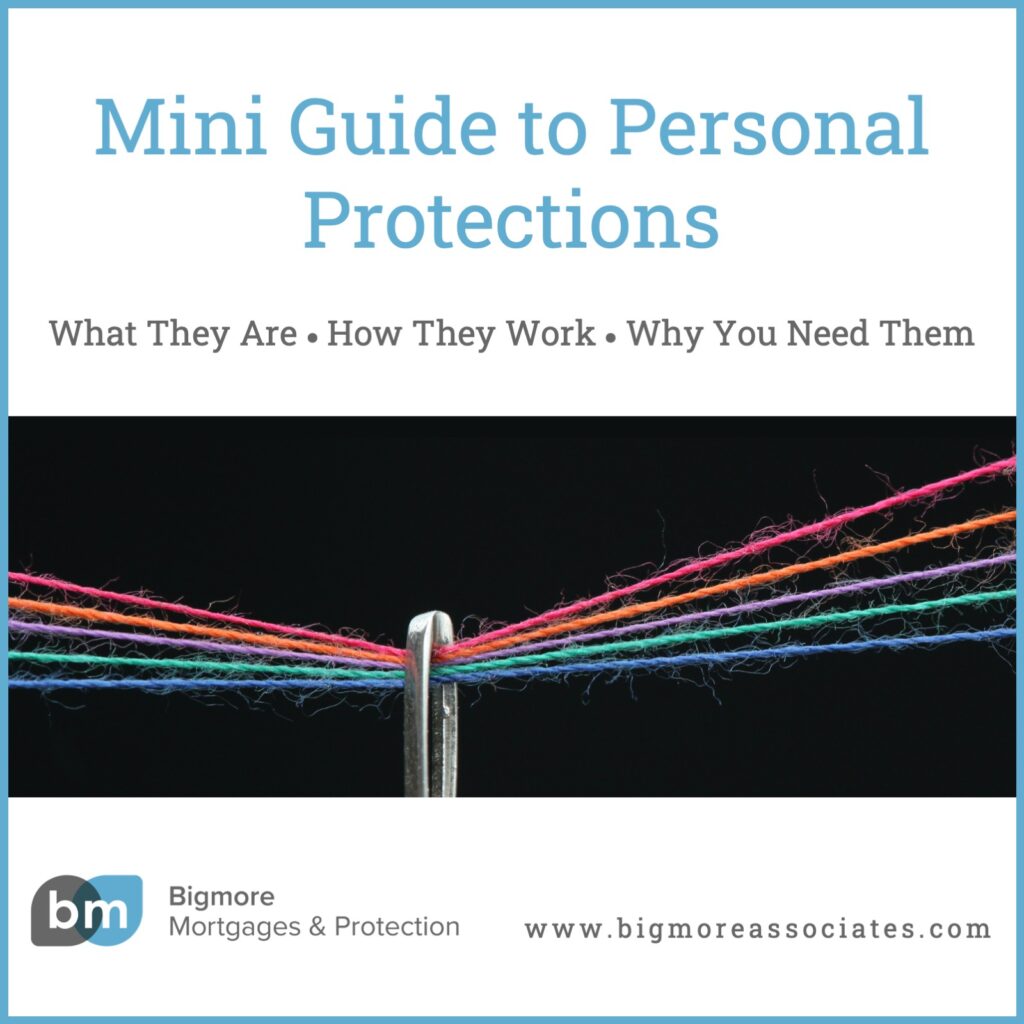Why Do We Need Life Cover?
When you’re young the last thing you probably want to do is think about what happens when you’re old. But let’s imagine something together.
You have a partner. Maybe you have children. You have a home, a life and responsibilities with your loved ones. Your days are spent working, yes, but your time off is spent with people you care about and enjoy being around. You have hobbies and projects. You travel when you can and are building a beautiful life with all the ups and downs that come with it.
At this point, life is paid for with income from your job. Or perhaps, from yours and a partner’s job. If you’re sensible, you’ve been saving for retirement as well as putting money aside for unexpected costs. Like a new boiler, replacement washing machine or TV. This is what many people call a ‘rainy day fund.’ However, if you die or suffer a critical illness, that rainy day suddenly becomes a flood. Now the money in this emergency fund might need to cover lost wages, pay the mortgage back, pay for childcare, general cost of living and so much more.
What would happen if suddenly one, or even worse, both of you were not here anymore? If the worst was to happen and you leave behind a family, a mortgage, maybe some debt would there be any money available to navigate this change and support your loved ones in the process? The rainy day fund would be gone very quickly and then what? Family, or the state will help, but will it be enough?

Hard and horrible to think about, yes. But important. Oh, so important.
We think, far too often, that death is reserved for the elderly. And that it comes after a long, full life. But young people die too. Young people develop diseases and get into accidents and face their mortality all the time. We cannot stave off death forever, but we can plan for it. If lucky those plans will be wasted, but surely time wasted is better than not having planned at all. So do our best to prepare and protect our loved ones if this happens.
How Does Life Cover Factor Into This?
Life cover is a type of personal protection that pays out a specific sum upon death. Typically, you take out a policy for that sum and make monthly payments for your plan. There are multiple types of life cover available and the product you choose will likely depend on things such as whether you have children or other dependents, a mortgage, a spouse or partner, if you are the main bread winner, what other assets you have, etc.
You can learn more about the different types of protections available through our mini guide on personal protections.

The purpose of life cover should be to soften the impact of losing a partner or loved one. Whilst you cannot replace a person you can make sure that the family is looked after and where appropriate limit the impact to children, or a partner in the event of death or critical illness. If you take out life insurance when you’re younger the cost of your monthly payments will be significantly less than if you wait till you are in your 40’s. .
Let's look at the numbers:
Alex, 27 years old
Million-pound policy
Term of 35 years
Pays £24/month*
£10,080 total paid in life insurance premiums
Kay, 40 years old
Million pound policy
Term of 35 years
Pays £74/month*
£31,080 total paid in life insurance premiums
(*Note: these policy payments are based on non-smoker, minimal drinking, good health report. Premiums vary based on lifestyle and health assessments.)
Length of Coverage
It is common practice to have your life cover linked to the length of your mortgage. This is because for many people the aim of the life cover payout is to ensure your home is secure should death occur. But there is nothing to say that you cannot take out cover that will last beyond the term of your mortgage.
Though life cover is usually linked to the value of your mortgage, it doesn’t have to be. If you had a salary income of £3,500pm and a mortgage cost of £1,600 this means you could repay the mortgage but are still worse off every month by £1,900pm. Affordability of cover will play a part in your planning but cover in addition to the mortgage should always be the aim.
Now, Kay taking out a policy at 40 means that there is coverage into later years than there is for Alex, who is currently 27. But there is nothing to stop a young person from taking a policy out which also covers them to 70 years old.
If Alex took out the same policy but did 50 years rather than 35, the total spent on premiums would be £14,400 which is still less than Kay. To put it another way – to end up paying the same amount as Kay, Alex would need to take out a policy lasting more than 100 years.
What About Critical Illness?
The policies above offer life cover only benefits. A better name for this would, perhaps, be ‘death cover’ as they cover death, or a terminal illness where death is likely within 12 months. Being able to receive a payout prior to death means that you could choose what happens to your money whilst you are still alive. It is also recommended to include critical illness as this will pay on the diagnosis of a critical illness, but where you do not die.
Critical illness cover can be included and with us having a 1 in 2 chance of catching cancer in our lifetimes could give you the breathing space needed to recover and yet not have impacted the household’s finances too badly.
A critical illness may actually impact your family more than death and whilst it is a more expensive coverage due to its likelihood to be claimed on, it should be considered as part of your wider planning.

Book to meet with Bigmores
Now that you have seen the cost that delay has on the premiums, why not contact the team at Bigmores for a free review of your life cover arrangements.
You may not need cover, but wouldn’t you rather know that for the cost of a takeaway or weekly coffee that you have looked after your loved ones and family members?
 Autumn 2025 Budget Speculation
Previous post
Autumn 2025 Budget Speculation
Previous post
